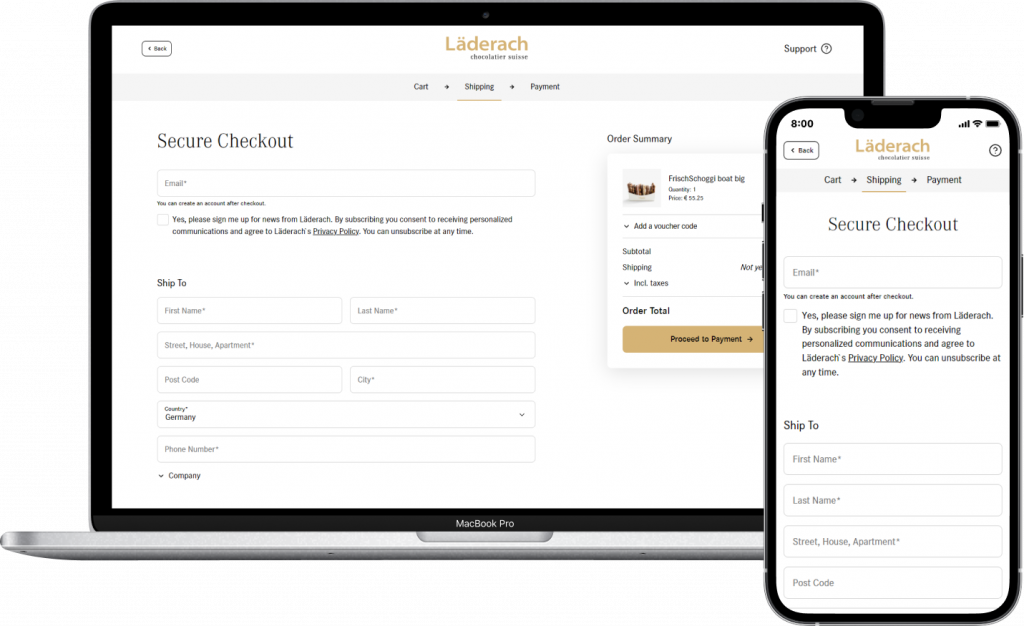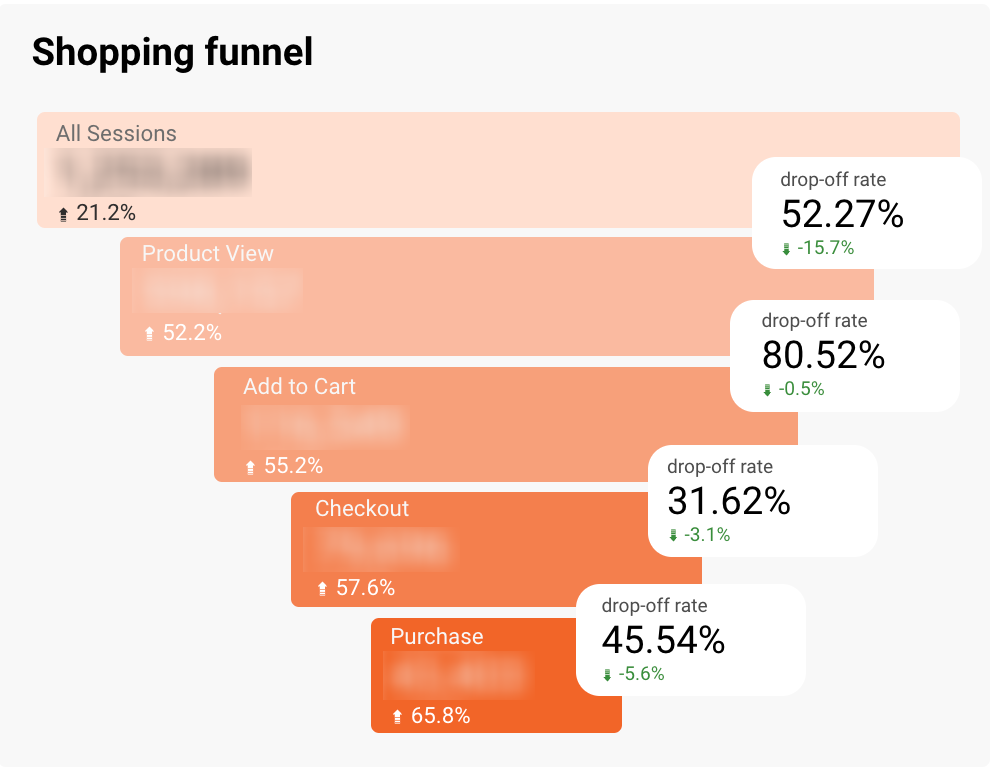Managing an eCommerce store successfully requires the collaboration of various teams that oversee website development, digital marketing, customer service, data analysis, and other operations vital to the growth of an online business. A dedicated eCommerce Manager is part of the Customer Experience (CX) team—there to follow the client’s strategic roadmap and ensure alignment among departments.
Let’s analyze the role of a dedicated eCommerce Manager in one of our projects.
Over the past few years, scandiweb has helped Läderach to create a new, easily manageable, scalable infrastructure for their eCommerce store on Magento (Adobe Commerce), with a partial Hyvä redesign. We’ve been an integral part of their journey to revolutionize their customers’ online experience.
The role of an eCommerce Manager
Tasked with overseeing the day-to-day eCommerce operations, this role involves strategic planning, continuous improvement initiatives, and technical oversight. From August until December of last year, scandiweb’s Dedicated eCommerce Manager for Läderach focused on four key areas:
- User research
A dedicated eCommerce Manager thoroughly understands the store’s audience through qualitative and quantitative research methods: analyzing data from session recordings, heatmaps, and voice of customer surveys to understand user behavior and preferences.
Additionally, we do competitor research and A/B testing to learn market trends and identify potential strategies.
- Ongoing improvements
An eCommerce Manager ensures continuous improvements to the website’s user experience by:
- Performing regular health checks and audits to identify and implement quick wins or low-hanging fruits
- Drafting concepts and developing ideas for store feature redesigns or new functionalities to align with user expectations.
- Website content management
Beyond strategic planning, the role often calls for hands-on content management. eCommerce Manager can adjust product categories, rules, and coupon codes and optimize landing pages and CMS blocks.
Given the large amount of visual material received, an eCommerce Manager also ensures the content is adjusted to the website needs—resizing images or tweaking visuals to fit specific blocks. The real advantage of having a Dedicated Manager is their ability to quickly discern what type of content is best suited for different CMS blocks and find efficient solutions.
- Overseeing deployments
While the Project Manager (PM) handles the coordination of deployments, the eCommerce Manager translates technical changes into understandable terms for the client. They ensure that all updates are correctly implemented and the website maintains its functionality and user experience post-deployment, preventing disruptions and maintaining client’s trust and end-user satisfaction.
Dedicated eCommerce Manager’s responsibilities
During the project, the manager’s main responsibilities revolved around ensuring the business saw continuous improvements in user experience. That was not limited to coming up with ideas but also seeing them through from concept to implementation.
- Aligning on CX roadmap—this responsibility is about improving aspects of the website that are most crucial to the business and drafting concepts of potential new functionalities.
- Acting as a “bridge” to translate technical questions to the rest of the team at Läderach—ensuring smooth communication and alignment between Läderach and scandiweb, e.g., translating client’s ideas into actionable development tasks.
- Overseeing seasonal content adjustments—managing the ideation, implementation, and quality assurance (QA) of seasonal campaigns, such as Christmas, New Year, Valentine’s Day, Easter, and Mother’s Day, keeping the website’s content fresh and relevant.

- Continuous website analysis—regular user research and data analysis are vital for identifying areas for improvement. Additionally, a dedicated manager can respond to the client’s requests for insights into specific ideas or problems they didn’t have time or capacity for prior.
- Consultation on eCommerce-related questions—offering expert advice via workshops or insights into best practices on various aspects of eCommerce, including new functionalities, ecosystem changes (e.g., CRM & CDP integration), and email marketing strategies.
How we work with Läderach
We have weekly alignment meetings with the Läderach team and additional meetings on every issue that needs a more thorough alignment. In the meantime, the eCommerce Manager works in the background, keeping them updated on the progress or user research findings.
The data is usually presented to the client in a presentation so that they can have a good overview. The client can and has reached out to their eCom Manager whenever needed, and this process has worked smoothly for us.
After aligning the business objectives, the manager begins research. Based on the findings, they come up with a valid approach (draft a concept of the change) for the client to approve. The eCommerce Manager coordinates and communicates further with the PM and the development team, eliminating several layers of responsibilities for the client. All they have to do is point their eCom manager in the right direction.
Regarding content adjustments and seasonal changes on the website, the client sends over visuals and texts needed for the campaign, and the eCommerce Manager coordinates everything related to making the changes, whether doing it right away or assigning them to the development team. Some seasonal changes require new approaches— for instance, we developed a trigger-based pop-up system for shipping cut-off dates, ensuring that it nudges customers at the right time to make the purchase.

Results and benefits
Having a dedicated eCommerce Manager brings many benefits to a business:
- Continuous CX improvements based on factual data analysis
- Technical support, QA throughout the website, and relevant recommendations for ecosystem enhancements
- Cross-functional collaboration to ensure smooth operations between departments
- A strategic plan in place for executing website-related improvements and seasonal campaigns
- Adaptability to changes regarding technology, consumer behavior, and industry trends.
We observed improvements across KPIs during this management model, underscoring the significant impact of a Dedicated eCommerce Manager. Although an increase in SEO and PPC budget contributed to these results, CX changes were identified as a key driver of success. Most notable KPI improvements:
- +40.4% eCR
- +95.4% purchase revenue
- +77% transactions
- +10.4% average order value
- -20.8% bounce rate
- +34.3% engaged sessions
- +55.2% sessions with add-to-cart
- +61.1% sessions with checkouts
We also observed drop-off rates decrease for Läderach on all shopping funnel steps.

Do you think your store could benefit from an experienced Dedicated eCommerce Manager? Our CX team is here to guide your business to higher conversions. Start with a free website audit, and let’s connect and start building your success story!



Share on: